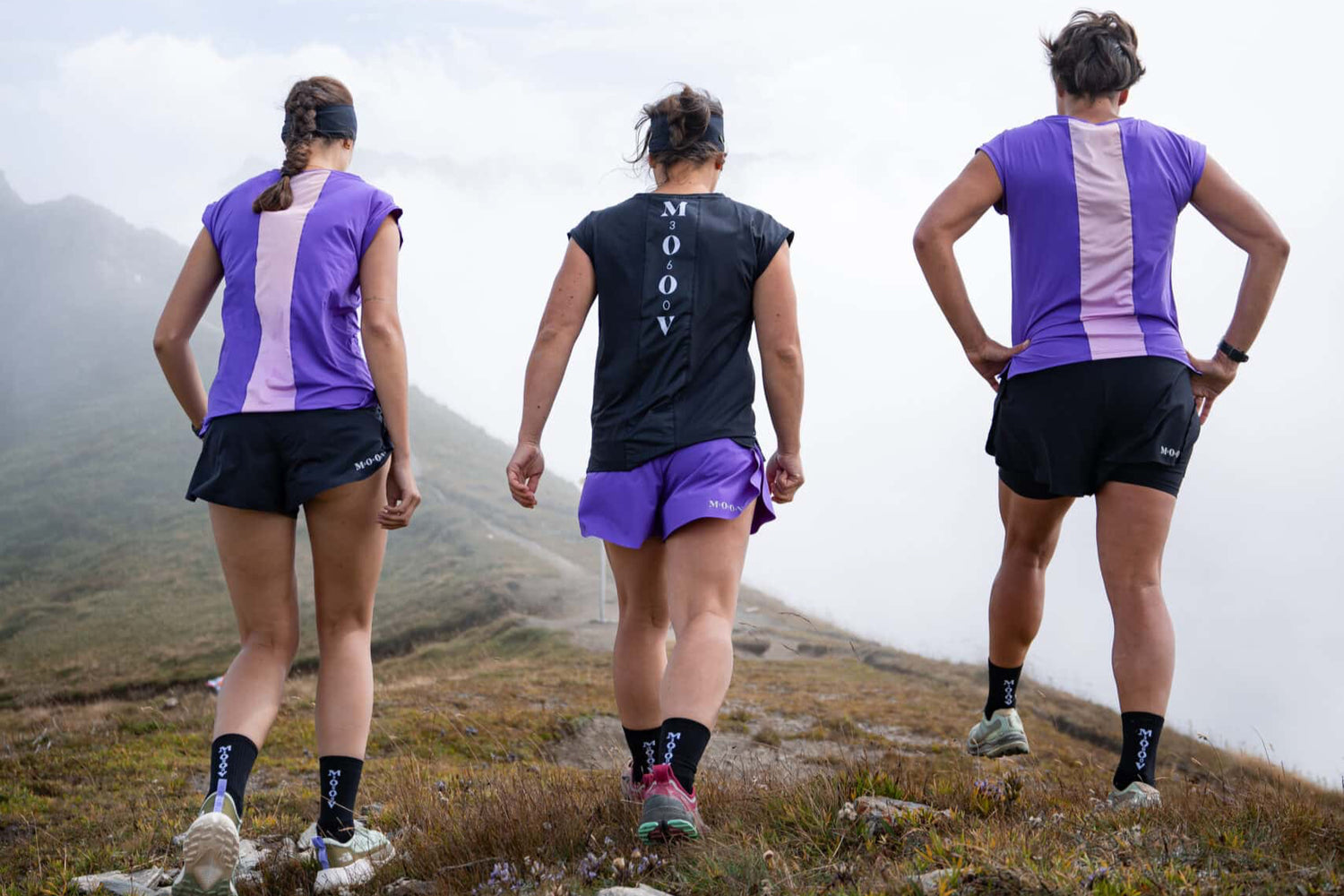Find all the advice from Hélène from Run For Fit to perform well over 20KM
General rule
Do not test anything on race day: equipment, breakfast and refreshments (gel, isotonic water, etc.).
BEFORE THE RACE
Training
Stick with it until the end, plan your last long ride well and use it to test your gear/nutrition that you want to use on the day.
Equipment
Think about the 10-degree rule. Not sure what to wear? What's the temperature like when you run? Add 10 degrees (how warm it will feel), and dress accordingly (it also depends on your adaptation to cold/heat). If it's very windy, a windbreaker is always welcome, no matter the temperature.
Shoes
Less than a month before the race, keep the shoes you have used so far, training only in them.
Nutrition
Especially the week before the big day, it's important to give your body only what it needs. Think about making digestion as easy as possible by eliminating fats, cooking your vegetables and fruits, and drinking plenty of water, preferably herbal teas. Theine and caffeine can have a negative impact on digestion, especially when running. Also avoid cow's milk.
A typical day's meal plan for a runner: (as an example)
Breakfast : 2 boiled eggs, herbal tea, a slice of sourdough bread with almond paste.
Lunch : potatoes (2/4), chicken breast (1/4), vegetables (1/4) (more starch than protein)
Dinner : pasta (1/4), white fish (2/4), vegetables (1/4) (more protein than starch. In the evening, muscles regenerate thanks to protein)
Snacks : fruit (ideally banana), yogurt, dried fruit.
D-DAY
Weather report
If it's hot (+25 degrees) slow down and drink plenty of water in small sips (always have a full bottle on hand). If necessary, sprinkle yourself with water at each refreshment stop.
Race strategy
Especially for runners, knowing the course will help you physically and mentally. Physically, because you'll better manage your effort by knowing where the (less) difficult sections are. Mentally, because you'll be breaking the course down into different chunks of, say, 5 km, instead of seeing 20 km ahead of you.
Departure
Know your pace and stick to it!!! No need to rush off at the starting line because your neighbor is doing it too...you'll pass him at km 10...burned out!
Nutrition
Eat 2 to 3 hours before the start. A pre-race breakfast that you have already tried! Still, have a banana with you to eat before the race. Don't miss any refreshment stops: remember to chew your water well to digest it better (that is to say, don't swallow it straight away but mix it with your saliva). After the race, continue to drink plenty of water. Ideally, you should eat 2 more balanced meals before moving on to fries and beer, but how can you explain that to a Belgian ;).
Get well soon!
By Hélène from Run For Fit
Find Hélène on Instagram (@runforfit.be)






